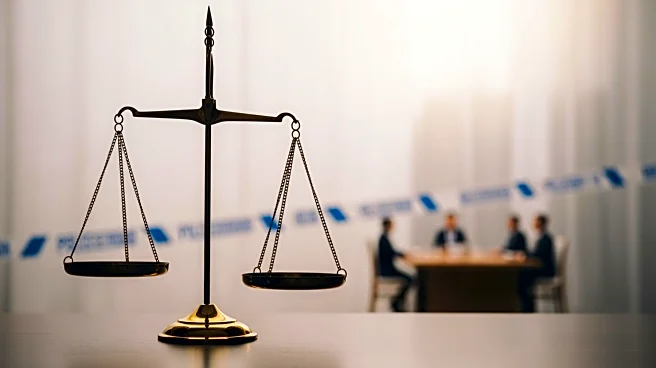What's Happening?
The Supreme Court has agreed to review whether states can count mail ballots that arrive after Election Day, a practice challenged by President Trump. This decision follows an appeal from Mississippi, where a law allows ballots postmarked by Election Day to be
counted if they arrive shortly thereafter. The 5th U.S. Circuit Court of Appeals previously ruled that this law violates federal regulations. Mississippi is among 18 states, including swing states like Nevada, that accept late-arriving ballots. The case will be argued in late winter or early spring, with a ruling expected by June, potentially affecting the 2026 midterm elections.
Why It's Important?
The Supreme Court's decision could have significant implications for election procedures across the United States. If the appellate ruling is upheld, it may lead to changes in how ballots are counted, potentially affecting close races and altering election outcomes. This issue has been a focal point for President Trump, who argues that late-arriving ballots undermine electoral integrity. The ruling could influence legislative actions in states like Ohio, where lawmakers are pushing for stricter ballot receipt deadlines. The outcome may also impact military and overseas voters who rely on mail-in ballots.
What's Next?
The Supreme Court's ruling will likely set a precedent for how states handle mail-in ballots in future elections. If the court sides with Mississippi, states may need to revise their election laws to comply with federal standards. This could lead to legislative changes in states that currently allow late-arriving ballots. Additionally, the decision may prompt further legal challenges and influence ongoing debates about election security and voter access. Stakeholders, including political parties and civil rights groups, will be closely monitoring the case's progress and potential implications.
Beyond the Headlines
The case raises broader questions about federalism and the balance between state and federal authority in election administration. It also highlights the ongoing debate over election security versus voter accessibility. The decision could impact public confidence in the electoral process, especially in closely contested states. Furthermore, it may influence future legislative efforts to standardize election procedures across the country, potentially affecting voter turnout and engagement.
















